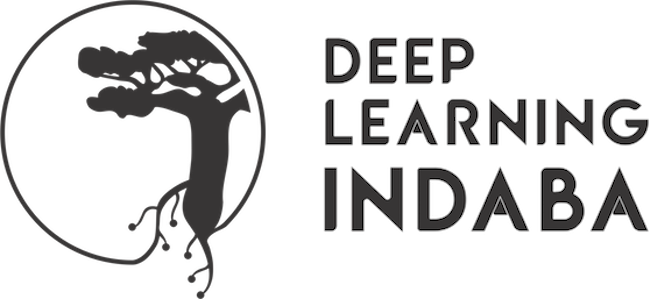This month’s letter is presented by Professor AZA Allsop: artist, neuroscientist, and psychiatrist who conducts research at the intersection of social cognition, music mindfulness, and psychedelics. AZA’s intersectional research is motivated by the desire to decode methods for treating mental suffering and enhancing the evolution of society at large.
I am honored to have this platform to communicate with the Deep Learning Indaba community. I must admit that it has been challenging to write to you at this time where there is so much going on and so much to say. I am unsure of what is most salient. I do think we are at a critical time in human history. Our technology is rapidly expanding and our machines are becoming more and more “intelligent” as we simultaneously enhance our ability and capacity for self-destruction. We have inherited and been trained in a model of society and science that is not sustainable. Can we adapt in time to meet these challenges? I mostly position myself as an optimist and even still it can seem overwhelming to think about the solutions and where they will come from.
However, the more I think about it, the more certain I am that the solutions for our crises will come from people like you. Those who have been historically marginalized from the global STEM stage yet have such abundance of natural, mental, cultural and spiritual resources that our brilliance can’t be denied. I also think that Artificial Intelligence, with its capacity to integrate, synthesize, and find patterns in large, complex data, will be an important part of our ability to solve our greatest problems.There is an opportunity for Africa and the diaspora to be leaders in a social evolution that utilizes AI to facilitate our ability to survive the times that are coming.
Indeed we are in a time where impactful change is needed. There are 3 major interrelated crises that threaten our species and require our deep and urgent attention: mental health, social, and climate crises. Mental health symptoms continue to worsen globally with severe implications for societal well being. Increases in loneliness in society and the growing impact of wars and social upheaval are witnessed across the globe while expenditures on peacebuilding and peacekeeping represent less than 0.6% of military spending. The 10 most recent years are the warmest on record and weather-related events have already displaced an estimated 23.1 million people on average each year over the last decade. These are sobering realities to contend with, yet we have to contend with them for our lives and the lives of our families.
As scientists, engineers, academics, and entrepreneurs in the community we have tools that we can leverage to solve problems. We know how to tackle challenges and persist until something breaks through into Light. There are so many ways that we can use our gifts and the opportunities and privileges we have had to learn science and help shape the future. I urge us to always rely on the ethos of community as the word Indaba implies. Let the Indaba not just be a gathering to share data, but a nexus point that can galvanize a movement. We have to come together across the Diaspora to solve the problems that we now face. We can’t look to others for the answers but must take it upon ourselves as a community to be bold in crafting new ways of thinking, solving, and being.
I remain an optimist because wherever we see dark, there is space for light to shine. I am a person of African descent who started my science career as a college student at North Carolina Central University, an HBCU, and then completed medical and graduate training at Harvard, MIT, and Yale. I understand that the resources, access, and network are not equally available to everyone. Yet in the most dire circumstances, where resources are most limited, there is a tremendous potential for rapid and ingenious innovations. I encourage you all to remain bold in the face of adversity and to continue to make a path forward in which we can truly use advances in AI to achieve humanity’s balanced co-existence with nature. I pray for peace, love, and joy for us here and now as we pursue this quest.
Best,
AZA Allsop, MD, PhD
